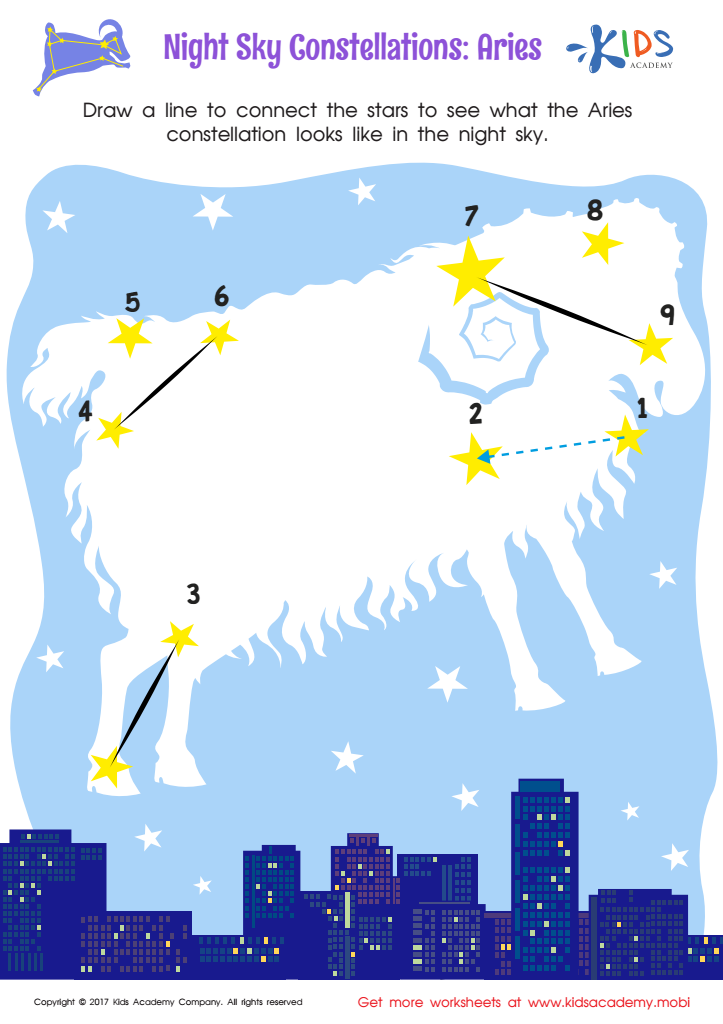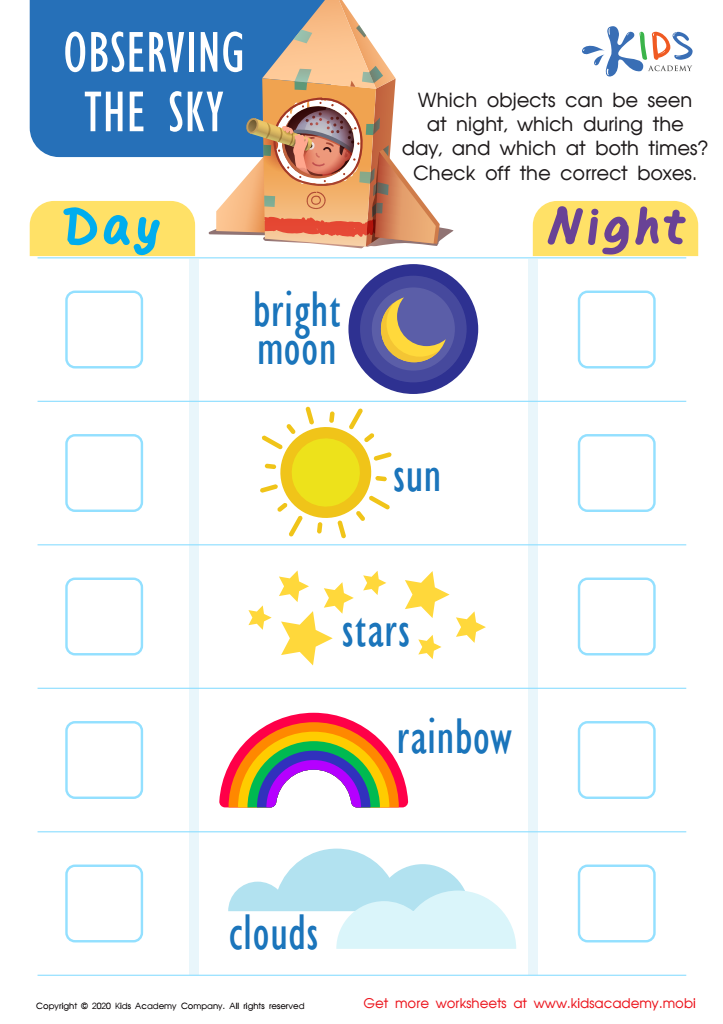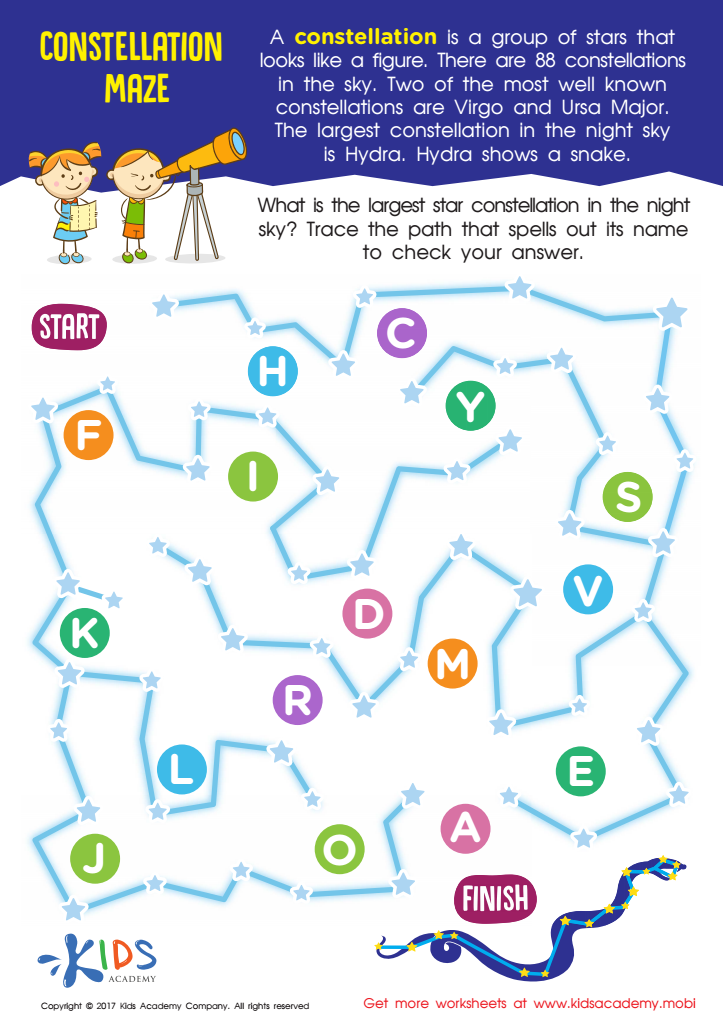Understanding constellations Normal Science Worksheets for Ages 6-9
3 filtered results
-
From - To
Discover the wonders of the night sky with our "Understanding Constellations" Normal Science Worksheets designed for ages 6-9. These fun, educational printables are perfect for young students eager to learn about astronomy. Engaging activities help kids identify different constellations, connect the stars, and understand their stories. Our expertly crafted worksheets align with science curriculums, making learning both effective and enjoyable. Foster a love for space and science with visually appealing materials that spark curiosity and imagination. Perfect for classroom use or at-home learning, these worksheets make exploring the stars an exciting adventure for every young astronomer!


Night Sky Constellations: Aries Worksheet


Observing the Sky Worksheet


Constellations Worksheet
Understanding constellations is a fantastic way to introduce young learners aged 6-9 to fundamental scientific concepts in an engaging manner. When parents and teachers invest time in exploring constellations with children, they open the door to a world of learning and curiosity. By observing the stars and the different patterns they form, children can nurture crucial cognitive skills such as pattern recognition, spatial awareness, and memory.
Exploring constellations also serves as a gateway for children to appreciate larger scientific themes, such as astronomy, Greek mythology, cultural history, and even basic math. For instance, learning about constellations can lead to discussions about the solar system, the cycles of the moon, and the rotation of the Earth—all key scientific principles that form the foundational knowledge for more complex subjects.
Moreover, studying the stars instills a sense of wonder and eagerness to explore, which is essential for lifelong learning. When children marvel at the night sky, they start asking questions and seeking answers, driving their critical-thinking skills and sparking an interest in STEM fields (Science, Technology, Engineering, and Mathematics).
Therefore, both parents and educators play a vital role in nurturing these interests. By making learning about constellations both fun and educational, they help children develop a scientific mindset and a love for learning that can benefit them throughout their academic journey and beyond.
 Assign to My Students
Assign to My Students





.jpg)













